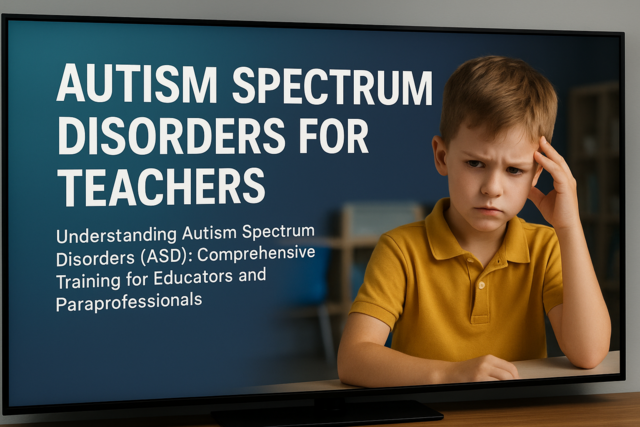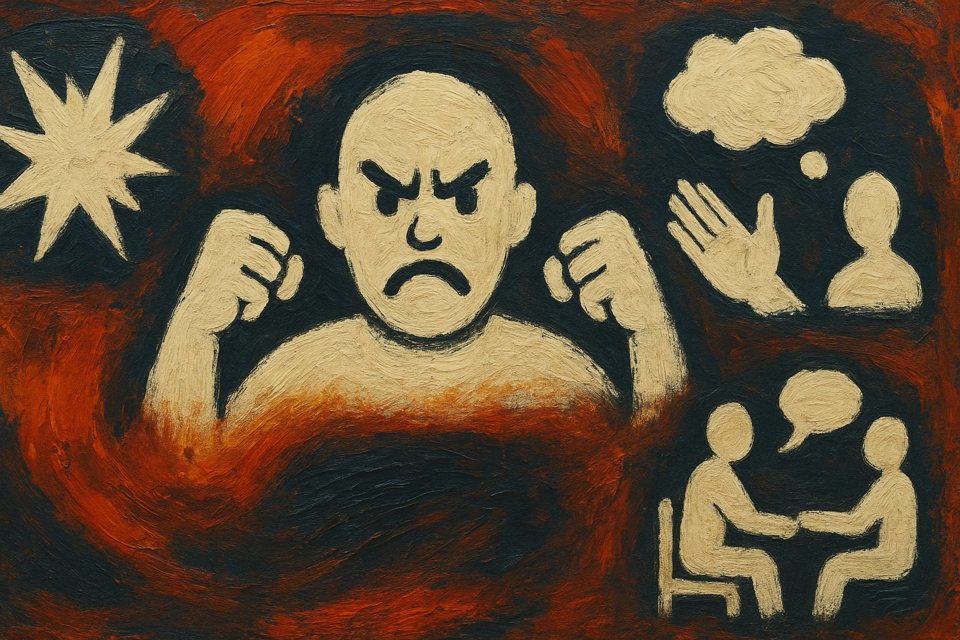Anger Management Techniques
Learn How to Control Your Anger

5 Hours average completion time
0.5 CEUs
10 Lessons
23 Exams & Assignments
2391 Discussions
10 Videos
11 Reference Files
89 Articles
Mobile Friendly
Last Updated December 2025
Manage Your Anger: A Comprehensive Online Course
Do the aftereffects of unrestrained anger leave you grappling with regret or damaged relationships? If so, our meticulously designed online anger management course might be your pathway to finding equilibrium. This course is more than just theoretical knowledge; it provides actionable techniques and holistic understanding, acting as a guide to reclaim control over one's reactions.
Understanding Anger
At its core, anger is an emotional response to external or internal events. It can manifest as a mild irritation or escalate to intense fury. It's essential to remember that anger, in itself, is a natural and sometimes necessary emotion. However, the real concern arises when this emotion results in aggressive, violent, or disruptive behaviors.
Anger often stems from unmet expectations, whether they're related to other people's actions, situational outcomes, or even our performance. For instance, consider a scenario where you expect a peaceful drive to work, but instead, you're stuck in a bumper-to-bumper traffic jam. The disparity between expectation and reality can ignite feelings of frustration.
However, it's the outward expression of this anger that can lead to conflicts. Lashing out at a loved one in a heated moment, or engaging in destructive behaviors like property damage, can have long-term consequences on relationships, professional life, and mental well-being.
Delving Deeper: The Many Facets of Anger
-
Types of Anger: There are distinct forms of anger. Some might stem from feeling threatened, while others arise from perceived injustices or are more personality-driven than situational.
-
Responses to Anger: Recognizing how one responds to anger is crucial. For some, it's a verbal outburst, while others might resort to physical actions.
-
Anger in Relationships: Uncontrolled anger can strain relationships. By understanding its origins and manifestations, one can mitigate its impact.
-
Stress and Anger: Stress can exacerbate anger. Identifying stressors and managing them can significantly reduce unwarranted anger episodes.
-
Passive Aggressive Behaviors: This is a covert way of expressing anger. Recognizing and addressing such behaviors can improve interpersonal dynamics.
-
Empathy: Cultivating empathy can be a buffer against unwarranted anger. Understanding others' perspectives can reduce misunderstandings and conflicts.
Tools & Techniques
-
Control Mechanisms: Learn proven strategies to regulate anger episodes and prevent them from escalating.
-
Relaxation Techniques: Incorporate breathing and relaxation exercises to reduce the intensity of anger.
-
Seeking Professional Help: Recognize when it's time to seek expert intervention and the available resources.
Why Take This Course?
If anger is the default response to trivial irritants or is affecting your personal and professional life adversely, it's a sign that intervention is needed. The repercussions of unchecked anger extend beyond the individual. It affects families, friendships, workplaces, and communities.
Our course equips you with knowledge, resources, and techniques to break the cycle of reactive anger. By fostering self-awareness and teaching control methods, we aim to help participants lead a balanced, fulfilling life.
In Conclusion
Anger, when understood and managed, can be transformed from a disruptive force to a constructive one. Our course aims to be that transformative tool, guiding you towards understanding, acceptance, and effective management of this potent emotion. Join us, and take the first step towards a harmonious, balanced life.
- Enhanced interpersonal communication skills
- Empathy-driven conflict resolution
- Improved relationship dynamics
- Self-regulation of emotional responses
- Strategic anger response planning
- Effective stress management techniques
- Resolution-oriented problem-solving mindset
- Constructive expression of emotions
- Resilience through mindfulness practices
-

Investing 101: Stocks, Bonds, and Mutual Funds
-

Wellness Coaching
-

Economics 201
-

Delegation Skills
-

Photography 101: Beginner to Intermediate
-

Introduction to Abnormal Psychology
-

Human Resources Productivity Course Bundle
-

Business Administration 101
-

Innovative Thinking Skills
-

Lean Management
-

Journalism 101
-

Healthy Relationships
-

Preventing Workplace Harassment
-

Understanding Insurance Types
-

Become a Life Coach - Course Bundle
-

Assertiveness Training
-

Business Credit 101
-

The Art of Breathing
-

Human Resources Management
-

Autism Spectrum Disorders for Teachers
-

Confidence Building
-

Career Coaching
-

Dreams Unveiled: Navigating Your Nighttime Visions
-

Landscaping 101
-

Lifetime Wellness 101
